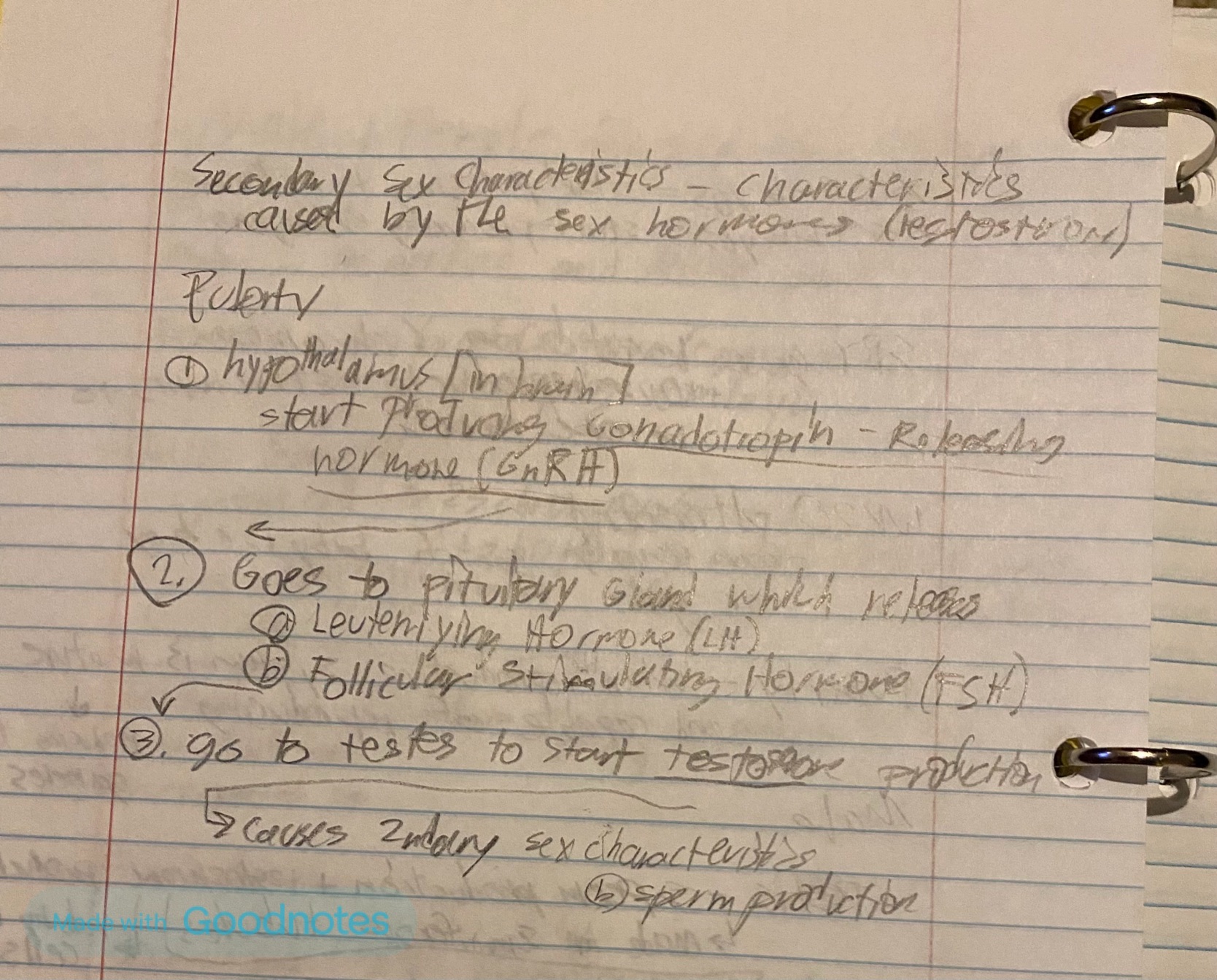What are the secondary sex characteristics caused by sex hormones, specifically testosterone, and how do they relate to the process of puberty?

Understand the Problem
The question focuses on secondary sex characteristics and the hormonal processes involved in puberty, specifically the roles of the hypothalamus, pituitary gland, and sex hormones in initiating testosterone production.
Answer
Testosterone causes facial hair, deep voice, muscle growth, and body hair during puberty.
Secondary sex characteristics caused by testosterone include facial hair growth, deepening voice, increased muscle mass and body hair, and changes in body structure. These occur during puberty as the hypothalamus signals the pituitary gland to release hormones that stimulate testosterone production.
Answer for screen readers
Secondary sex characteristics caused by testosterone include facial hair growth, deepening voice, increased muscle mass and body hair, and changes in body structure. These occur during puberty as the hypothalamus signals the pituitary gland to release hormones that stimulate testosterone production.
More Information
Testosterone plays a crucial role in developing male secondary sex characteristics, highlighting the impact of endocrine changes during puberty.
Tips
Confusing primary and secondary sex characteristics is common. Primary characteristics are directly involved in reproduction, while secondary characteristics are those changes like hair growth and voice deepening.
Sources
- Secondary Sex Characteristic - an overview | ScienceDirect Topics - sciencedirect.com
- Testosterone: What It Is, Function & Levels - Cleveland Clinic - my.clevelandclinic.org
- Secondary sex characteristic - Wikipedia - en.wikipedia.org
AI-generated content may contain errors. Please verify critical information